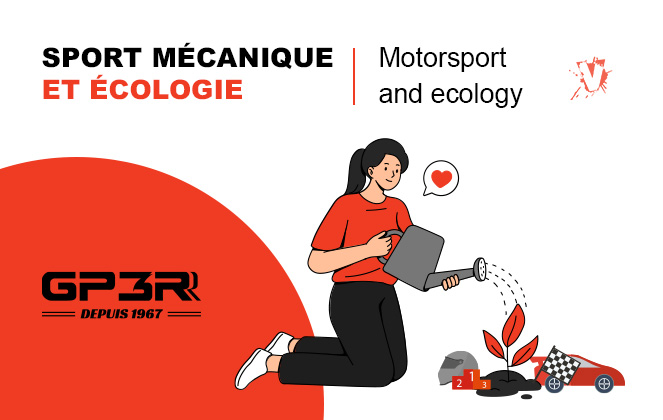The future of motorsports: green initiatives in the world of GP3R

Motorsports, often synonymous with noisy engines and outstanding performance, are also regularly associated with a significant ecological footprint. However, the motorsport industry is at a turning point where sustainability is no longer just an option, but a necessity. Several major events, such as the Grand Prix de Trois-Rivières (GP3R), are beginning to explore eco-friendly initiatives to reduce their environmental impact while preserving the adrenalin of racing. What are these initiatives, and how might they shape the future of motorsports?
1. Collection points for used products: a crucial first step
At the recent GP3R, a pilot initiative was launched to encourage race teams to adopt greener practices. Collection points were set up to collect used products such as oils and tires, preventing them from being dispersed into the environment. This not only reduced the amount of waste generated by the event, but also gave new life to these materials. It’s a step towards a circular model in sport, where products are no longer simply thrown away after use, but revalorized.
This project, which is part of the commitment of ReGNR, SOGHU and other partners, could become a standard in motor racing events. By making teams and spectators aware of the importance of waste management, GP3R is laying the foundations for a more environmentally friendly sport.
2. The role of the public: awareness-raising and ecological commitment
Efforts to make motorsports more sustainable are not just the responsibility of race organizers and teams. The public also plays a crucial role in this transition. At GP3R, initiatives have been put in place to encourage spectators to adopt environmentally friendly behaviours, such as sorting waste or using public transport to get to the site.
Raising awareness of waste management, energy conservation and the importance of reducing personal carbon footprints is now an integrated component of the spectator experience. By actively engaging fans in these efforts, sporting events can create a collective movement in favour of ecology.
Conclusion
There’s still a long way to go to reach this goal, but with initiatives like GP3R, the motorsport industry is showing that it’s ready to rise to the challenge. Whether by recycling materials, adopting new technologies or engaging the public, every action counts in accelerating this transition to a greener future.
The Impact of Artificial Intelligence on the Labour Market: A Revolution in the Making
Published on 29 august 2024
The Emergence of LinkedIn: The Platform that Redefines Networking Professional
Published on 6 august 2024









